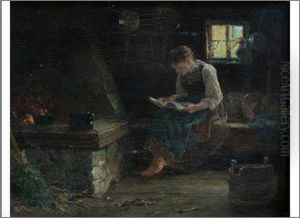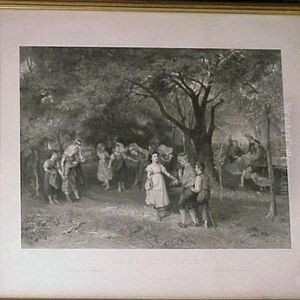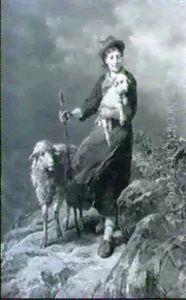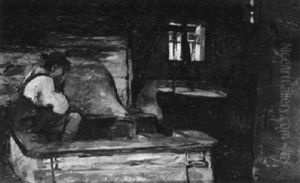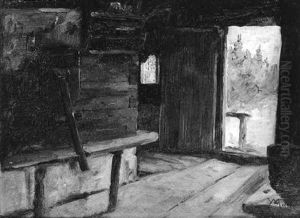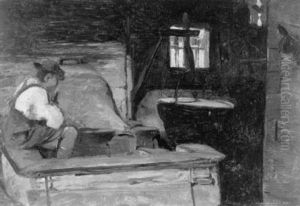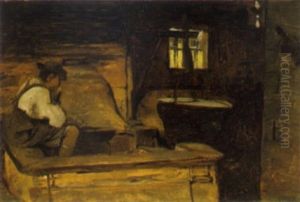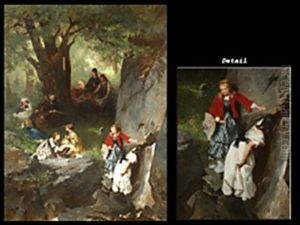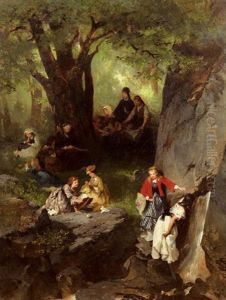Wilhelm Marc Paintings
Wilhelm Marc was a German painter, not to be confused with his more famous son, Franz Marc, one of the key figures of the German Expressionist movement and a founding member of Der Blaue Reiter (The Blue Rider) group. Wilhelm Marc was born on February 11, 1877, in the German Empire and was primarily known as a landscape painter.
Though not as widely recognized as his son, Wilhelm Marc's artistic works were rooted in the 19th-century tradition, and he often focused on the depiction of the natural world. His landscapes were characterized by a certain realism and attention to detail, which can be seen as a reflection of the academic training of the time.
Wilhelm Marc's life was largely spent in Munich, where he was part of the local art scene, and where his son, Franz, was exposed to art from an early age. This environment undoubtedly influenced Franz Marc's early development as an artist. Wilhelm Marc was supportive of his son's artistic ambitions, although the styles and artistic philosophies of father and son were quite different.
Wilhelm Marc's career and life were cut short by his untimely death in 1914, at the age of 37, which was a year after Franz Marc's rise to prominence with Der Blaue Reiter. Despite his early death, Wilhelm Marc's role as a father and his own contributions to art provided a foundation for one of the most significant movements in modern art, even though his personal acclaim did not reach the heights of his son's.


